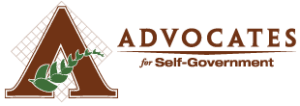(From the Intellectual Ammunition section in Volume 18, No. 18 of the Liberator Online. Subscribe here!)
 Private schools are good for families, good for kids and good for America,says the Council for American Private Education (CAPE), an organization that champions American private K-12 education.
Private schools are good for families, good for kids and good for America,says the Council for American Private Education (CAPE), an organization that champions American private K-12 education.
But you may be surprised at just how effective and beneficial America’s private schools
are.
According to CAPE:
- One in four schools is a private school.
- One child in ten attends a private school.
- Private schools produce an annual savings to taxpayers estimated at $50 billion.
- Private school students perform better than their government school counterparts on standardized achievement tests.
- Private secondary school students are nearly 50 percent more likely to take AP or IB courses in science and math than government school students.
- Sixty-seven percent of private high school graduates attend four-year colleges, compared to just 40 percent of government high school graduates.
- Private school students from low socio-economic backgrounds are more than three times more likely than comparable government school students to attain a bachelor’s degree by their mid-20s — meaning that private schools contribute to breaking the cycle of poverty for their students.
- Private schools are racially, ethnically, and economically diverse. Twenty-seven percent of private school students are non-white; 27 percent are from families with annual incomes under $75,000 (another 18 percent of families did not report income).
- Gaps between minority students and majority students are narrowed in private schools. Minority students in private schools are more than twice as likely to enter four-year colleges than their counterparts in government schools.
- The participation of private school students in community service projects is “significantly higher” than their government school counterparts.
- Many parents want the schools their children attend to help them instill the religious/spiritual values they embrace, and private schools help them meet this goal.
- A federal survey found that more than three-quarters of private school parents are “very satisfied” with their child’s school, compared with less than half of parents whose children were assigned to a government school.
- Private school students feel safer in their schools, and statistically are safer, than students in government schools.
Documentation is at CAPE’s website.
No wonder, then, that — to cite another CAPE statistic — a substantial majority of adults believe private schools do a better job of providing a quality education than government schools. And that belief, in turn, is fueling demand among parents for alternatives to the government’s failing education monopoly.

























